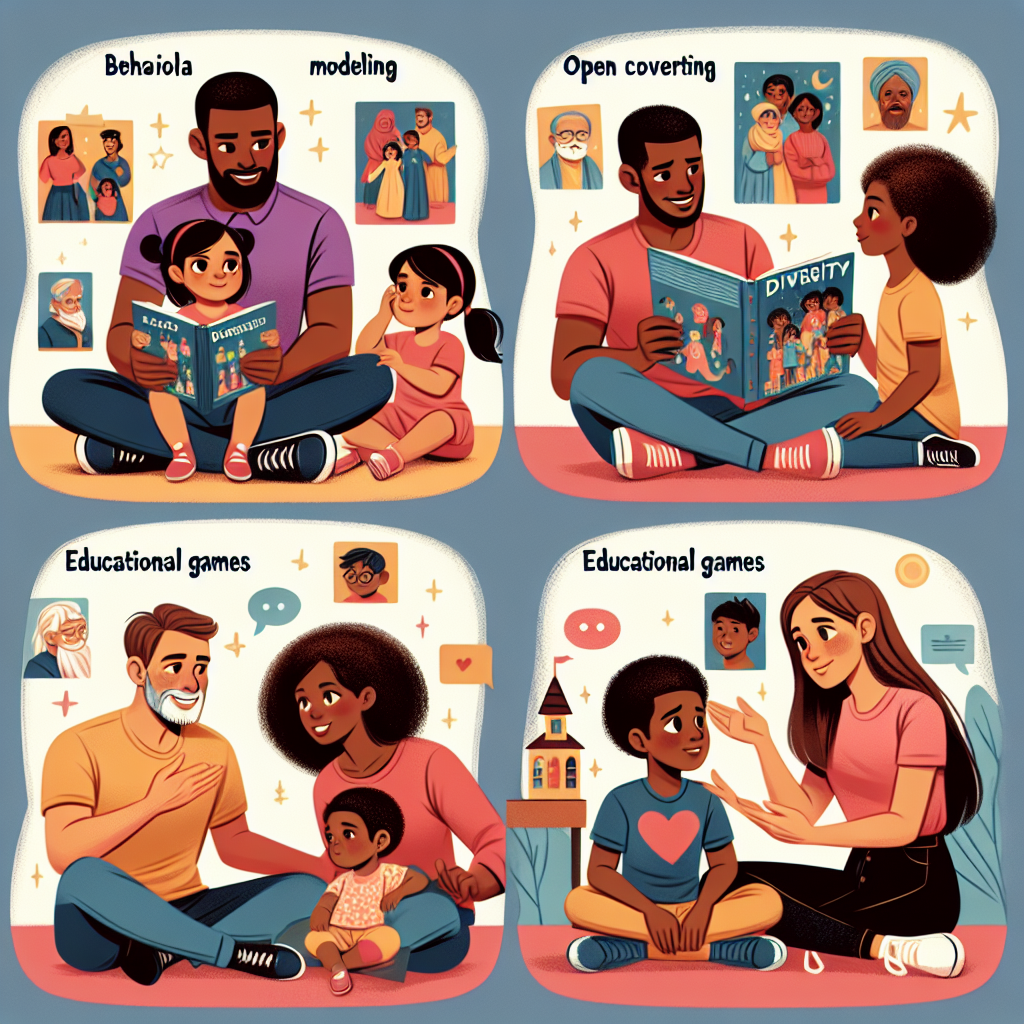How to Teach Your Little One Tolerance: Effective Strategies
Raising a child to understand and practice tolerance is a priceless gift you can give both to him and to society. Tolerance is not only accepting the differences of others, but also recognizing the value and uniqueness of each individual. In this article, we will guide you through the essential steps and effective strategies to teach your little one the art of tolerance.
The Importance of Tolerance in Child Development
Before tackling concrete strategies, it's essential to understand why it's so important to teach your child about tolerance. In an increasingly diverse world, children who learn to accept and respect people's differences will grow up to be empathetic and well-adjusted adults. Tolerance fosters inclusiveness, mutual respect and equal opportunities for all, while reducing prejudice and conflict.
Early Education By Example
The first and most important strategy for teaching your child tolerance is the role model you provide. Children are keen observers and imitate the behaviors they see around them. If we talk about equality and respect people's differences in our daily lives, children will take these values. Be aware of your own biases and work on them, as they can indirectly influence the way your child perceives the world.
Open Dialogue and Education
Talk openly with your child about different cultures, religions and ways of life. Tell them about friends and colleagues who may have different habits and explain that this makes them special and unique. Use books, movies, and activities that highlight diversity and encourage critical, positive thinking about differences.
Games and Educational Activities
Incorporating games and activities into the learning process can be a great way to teach children about tolerance. Role-playing games, puzzles that represent different cultures, and board games that promote fairness and cooperation are some examples. These activities help children understand and appreciate diversity in a fun and interactive way.
Encouraging Empathy
Empathy is the cornerstone of tolerance. Encourage your child to put themselves in others' shoes and understand their feelings. This can be done by discussing how they would feel in certain situations or by reading stories that emphasize the characters' emotions. It is important to cultivate sensitive and open hearts in our children.
Training on History and Human Rights
A thorough understanding of the history and struggles of human rights can play a crucial role in developing sensitivity and respect for diversity. Talk about the importance of equality and respect in society and how different cultures have contributed to our world.
Modeling Conflict Resolution
Teach your child how to resolve conflicts in a peaceful and respectful way. This will show them that differences of opinion are normal, but must be handled with respect and empathy. Role playing can be useful here, allowing children to practice negotiation and compromise skills.
Creating an Inclusive Environment
Make sure your child's home and environment reflects diversity. Include books, toys and art that represent a wide range of cultures and lifestyles. This not only educates the child but also makes him feel comfortable in the midst of diversity.
Involvement in the Community
Attend cultural events as a family and get involved in community activities. This will show children the importance of being part of a diverse community and help them learn to collaborate with people from different backgrounds.
The Role of School and Formal Education
Communicate with your child's school to ensure tolerance and diversity are emphasized there as well. School programs that include multicultural education can reinforce learning at home and give a child a broader view of the world.
Conclusion
Tolerance is a value that must be learned and cultivated from an early age. Through personal modeling, education, open dialogue, and community involvement, you can help shape an individual who appreciates and respects diversity. By teaching your child about tolerance, you not only contribute to their harmonious development, but also to building a better society for all. If this article was helpful, we encourage you to visit other sections of our store or subscribe to our newsletter for more helpful resources.














































































































































